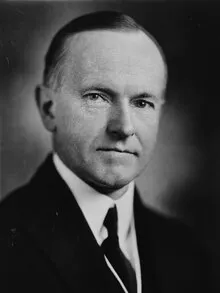8G History Lesson 110 Assignment – Part 1
This week I was to write about presidents Warren Harding and Calvin Coolidge. I decided to split it into two essays, this is the first part.
Overview
Warren Harding was the 29th president. He promised to help the U.S. return to normalcy after World War 1, but he accomplished little in office. His short time as president was marked by many scandals, which upset many people. Most people consider Warren Harding’s time in office as one of the worst.
Life and Presidency of Harding
Warren G. Harding was born on November 2, 1865 in the state of Ohio. He grew up on a farm, but his father later abandoned farming and became a physician. Warren grew up the oldest of 8 children. He tried many different careers, and bought a small newspaper company in Ohio. He became interested in politics, and slowly became more well-known.
Harding served as a senator, and was a member of the Republican party. He ran for president in 1920, under the slogan “Return to Normalcy.”
Harding didn’t do much in office. His biggest acts were to increase tariffs, and lower taxes on business. But the thing he is most remembered for is the scandals that took place during his presidency. Harding wasn’t the most honest man, and he didn’t appoint very trustworthy people.
Harding died of a heart attack while returning from a vacation in 1923. This marked the end of his presidency, and Calvin Coolidge took over.
Reference:
www.britannica.com/biography/Warren-G-Harding
